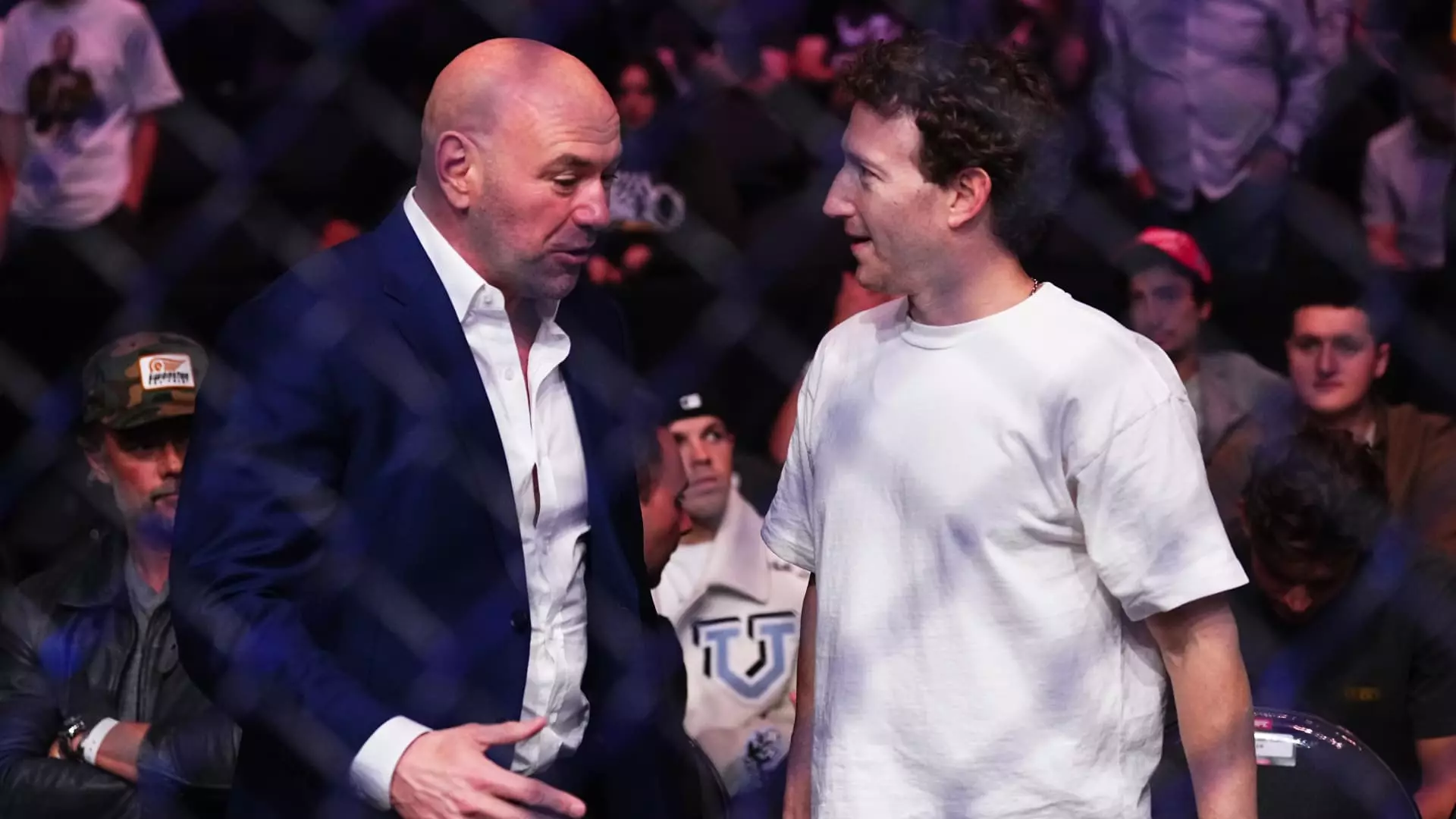The recent partnership between TKO Group’s UFC and Meta encapsulates a disconcerting development where corporate culture becomes increasingly intertwined with combat sports. While on the surface, this multimillion-dollar deal may seem promising—bringing UFC closer to advanced technology and fan engagement—the underlying implications are troubling. The UFC’s integration with Meta’s suite of platforms, including Facebook, Instagram, and WhatsApp, could signal the commercialization of a sport that thrives on raw, unfiltered competition. When the likes of Mark Zuckerberg, a tech mogul, gain such deep access to a fundamentally physical sport, one must question who holds the reins of authenticity in the UFC moving forward.
The endorsement from UFC President Dana White, claiming that Meta will “blow away UFC fans,” raises concerns rather than excitement. Are fans really clamoring for more tech to dominate their viewing experience, or is there a danger of diluting the visceral energy that makes mixed martial arts captivating? The implications suggest that a sanitized version of raw athleticism is on the horizon as technology starts to dominate the narrative.
The Convergence of Social Media and Sports
Meta’s role as the “official fan technology partner” makes perfect business sense; however, it provokes an unsettling marriage between social media influence and athleticism. What happens to a sport when its most intimate elements are filtered through the lenses of algorithms and targeted ads? While exclusive content on platforms like Threads promises to engage UFC fans in unprecedented ways, one wonders at what cost. Will fans become mere data points, commodified for the sake of sponsorship deals? The integration of fighter ranking systems backed by Meta technology is just one example of how data-driven decisions could reshape the sport, moving it further away from athletic meritocracy into a realm governed by digital metrics.
Zuckerberg’s participation in mixed martial arts adds a flavor of authenticity; however, it also risks trivializing a sport long revered for its grit and passion. By promoting a culture that celebrates increased virility—echoed in Zuckerberg’s remarks about “masculine energy”—the partnership leans towards a caricature of what combat sports represent. It’s about time we ask if this glorification of aggression is what the sport needs, or if it’s a harmful distraction from its core values.
Financial Transparency and Ethical Concerns
Intriguingly, the financial details of this sizable contract remain undisclosed. This secrecy raises red flags regarding the motivations underpinning this partnership. Are these two giant entities genuinely interested in elevating the UFC brand, or is this simply a dalliance in profit maximization? Given the history of marketers exploiting fan loyalty for financial gain, transparency is crucial in preserving the integrity of the sport. Without disclosed financials, fans could be left questioning whether their loyalty is being manipulated for corporate gain.
Notably, UFC is about to enter complicated negotiations for media rights even as they cozy up to Meta. It brings to light the idea that UFC may prioritize corporate partnerships over the inherent value of the sport and its athletes. The expiration of ESPN’s exclusive negotiating window amplifies concerns about a potential bidding war that may prioritize revenue over authenticity and uphold the values that draw fans to UFC.
The Influence of Personal Connections
The subtext of executive relationships can simplify complex negotiations but inevitably drags the sport into a murky ethical zone. UFC’s collaboration with Meta underlines this sentiment, especially considering that Dana White joined Meta’s board in January. While these ties may come with benefits, they also prompt questions about independence. Is the UFC maintaining its integrity, or has it become yet another pawn in the game of corporate interdependence?
The flirtation with political figures, including endorsements of Donald Trump by White, adds another layer of complexity to the deal. In an increasingly polarized political climate, such alliances risk alienating segments of the UFC fanbase. It is imperative to consider how corporate interests and personal affiliations will shape future narratives; sports should remain a haven for all, rather than a battleground for ideological skirmishes.
As UFC aligns more intimately with Meta, the sport stands at a crossroads. It offers a glimpse into a digital future that could broaden engagement but simultaneously teeters on the edge of commodification and loss of authenticity. The union raises profound questions about the essence of sports, fan loyalty, and where the corporate world ends and the gladiatorial spirit begins.

